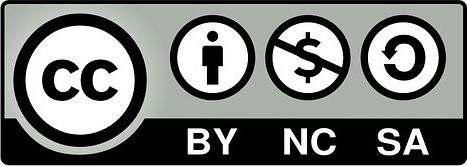EVALUATION OF THE PROPERTIES MODIFICATION FOR VIA ENZYMATIC OF THE STARCH OF YAM (D. trífida) USING -AMILASA (TERMAMYL® 120 L, TYPE L)
DOI:
https://doi.org/10.17533/udea.vitae.766Keywords:
D. trífida, enzymatic hydrolysis, modified starch functional properties.Abstract
The starch of yam constitutes an excellent raw material to modify the texture and consistency of foods. Its
functionality depends on the molecular weight average of the amilosa and the amilopectina, as well as of
the molecular organization of these glucanos within the grain, the native or natural starches are frequently
not adapted for their use in some specific industrial processings. This investigation, one carries out the
modification via enzymatic of the yam starch (D.trífida) using -amilasa (Termamyl 120L, type L of Novo Nordisk) to determine their functional properties.
The established treatments for the enzymatic
modification in this investigation are: reaction
temperature (50, 72 and 93ºC), concentration of
starch (30, 40 and 50% p/v) and time of reaction
(20, 40 and 60 minutes). One carries out a design
experimental factorial multinivel with four blocks.
The starches hydrolysated at 93ºC show dextrose
equivalent (DE) highest, followed respectively by
those of 72 °C and 50ºC. The evaluated functional
properties are: stability and clarity of the pasta,
acidity titulable, swelling capacity, determination of
the gelatinizatión point, true density, bulk density
and porosity. This investigation demonstrate the
great potential of the hydrolysates of starch of D.
trífida like an alternative to respond to the demands
of the industrial processes in the production of
foods, such as bakery products, sauces, yogurts,
marmalades and frozen products.
Downloads
Downloads
Published
How to Cite
Issue
Section
License
Copyright Notice and Open Access Statement
The Journal Vitae works under the Open Access license, and the published manuscripts remain available for the public, both on the Journal's website and in databases, under the Creative Commons license, "Noncommercial Attribution" and "Share alike" systems, adopted in Colombia. Hence, when the authors agree to publish in the Journal Vitae, they will not have the right to economic retributions on publications and reproductions through different diffusion media. The documents are freely available to the internet public, permitting users to read, download, copy, distribute, print, search, or link to the full texts and pass them as data to software. The only constraint on reproduction and distribution, should be to give authors control over the integrity of their work and the right to be appropriately acknowledged and cited.
Authors declare that:
-
They are the intellectual property owners and are responsible for all the information stated in the article.
-
This manuscript has not been submitted or published in other printed or digital media. They accept the responsibility for the judgments, opinions, and points of view expressed in the published article and, therefore, they exonerate Universidad de Antioquia and Journal Vitae from any process.
-
They exempt Universidad de Antioquia and Journal Vitae from settling conflicts or disputes related to the authorship of the referred article.
-
They accept the revision of the original manuscript by suitable personnel, and they bind themselves to perform the corrections appointed or suggested by the assessors.
-
Therefore, they know the editorial process and will not bind the Editorial Board of the Journal to assume any obligations regarding the volume and issue in which the article is published.
-
They transfer the rights of publication, reprinting, and distribution of the article from the moment of its approval, in print and digital format, without the right to economic rewards, and under the licensing conditions considered relevant by Journal Vitae.
-
They fully authorize Universidad de Antioquia and Journal Vitae to submit the published material to the diverse databases and indexing systems where the Journal can be found to comply with the requirements of the regulatory authorities to maintain the national classification of journals.
-
They will assume the article publication costs established for the current issue, and they will make the payment as soon as they are informed about the volume and the issue in which the final version of the article is published.
-
After the article is published, you can share digital or printed copies in a noncommercial manner. You will be able to use the paper in your institution or company for educational or research purposes, including the use in course programs.
Conflict of interest: Authors are responsible for recognizing and disclosing any financial or other benefits that could be perceived to bias their work, acknowledging all financial support and any personal connections with potential sponsors. Examples of such conflicts include receiving research funds or honoraria, serving on advisory boards, stock ownership, or employment and consulting arrangements. Authors without such connections should clearly state that they have no financial support or personal relationships that could be perceived to bias their work. All conflicts of interest should be disclosed on the author's identification page of the manuscript.










